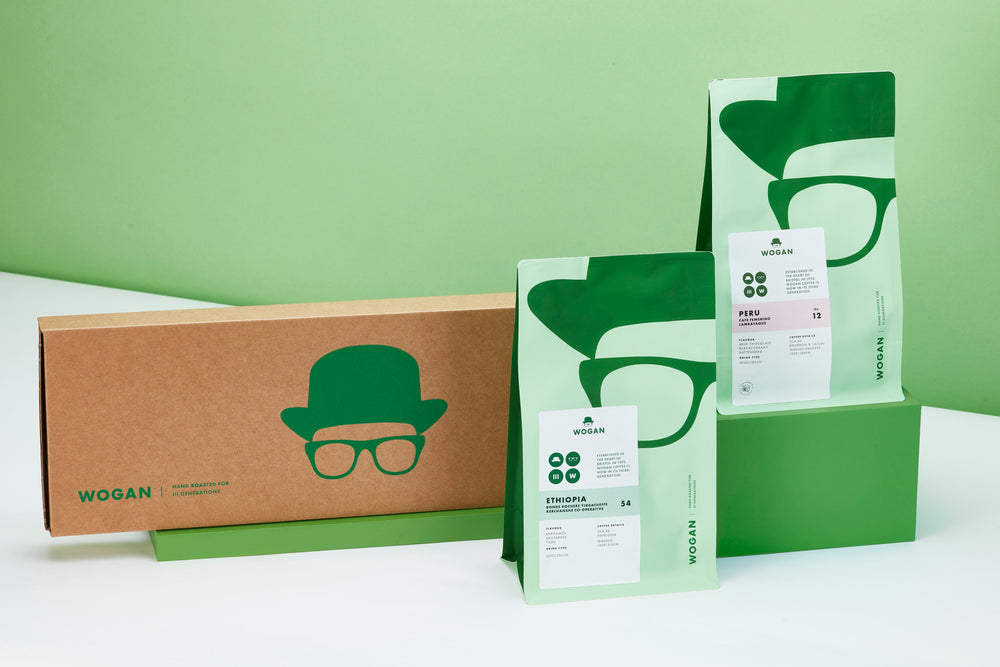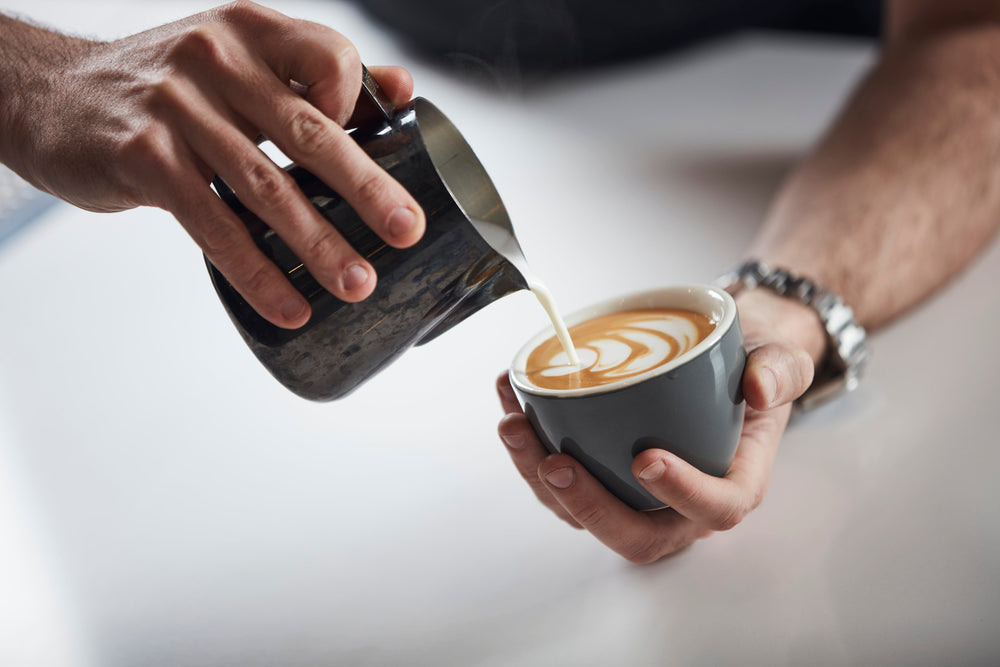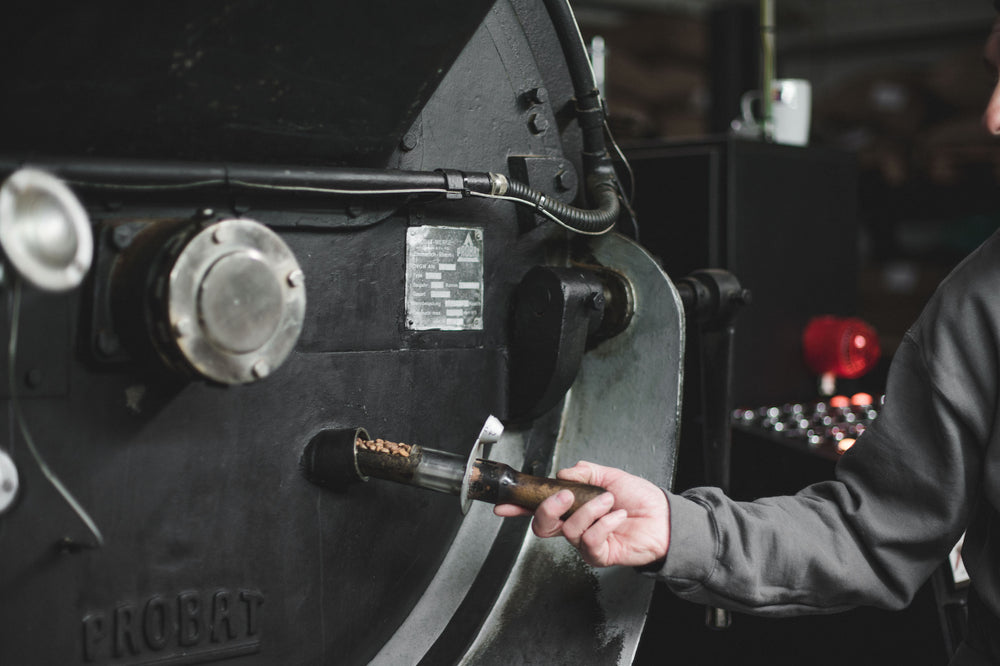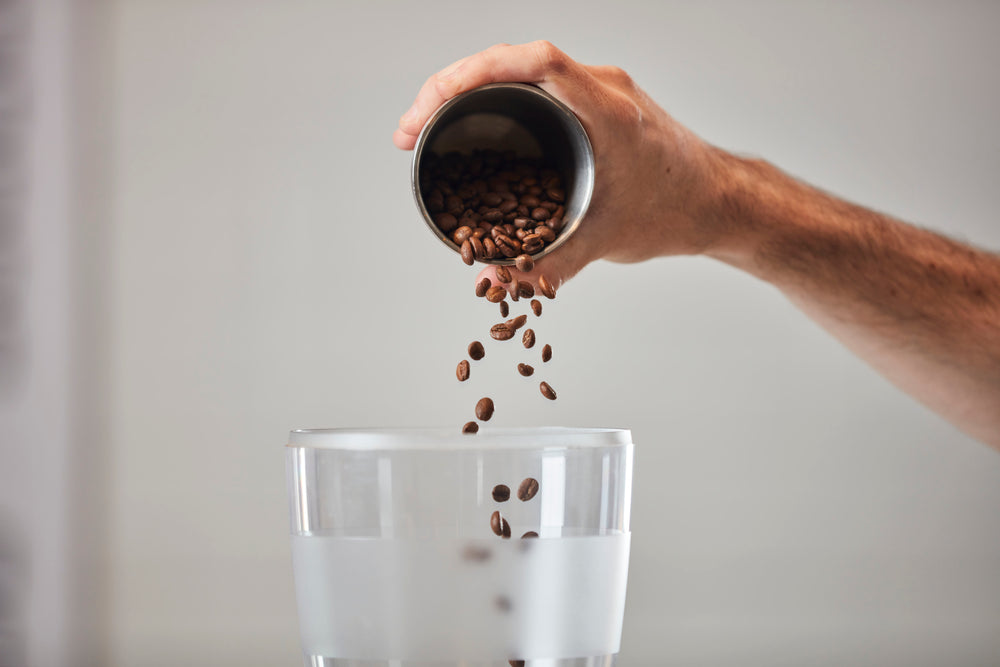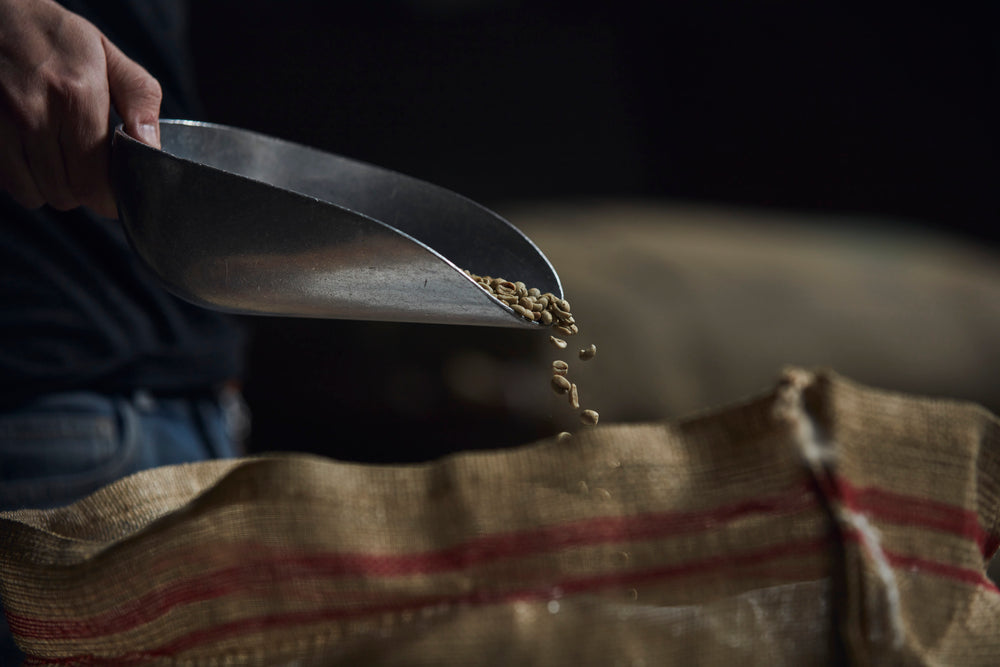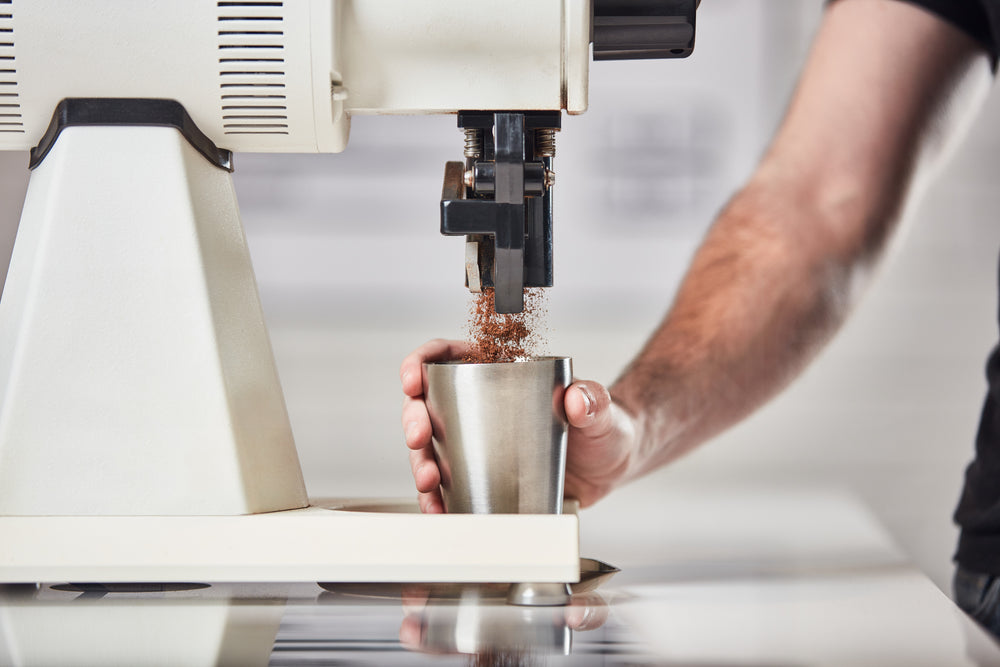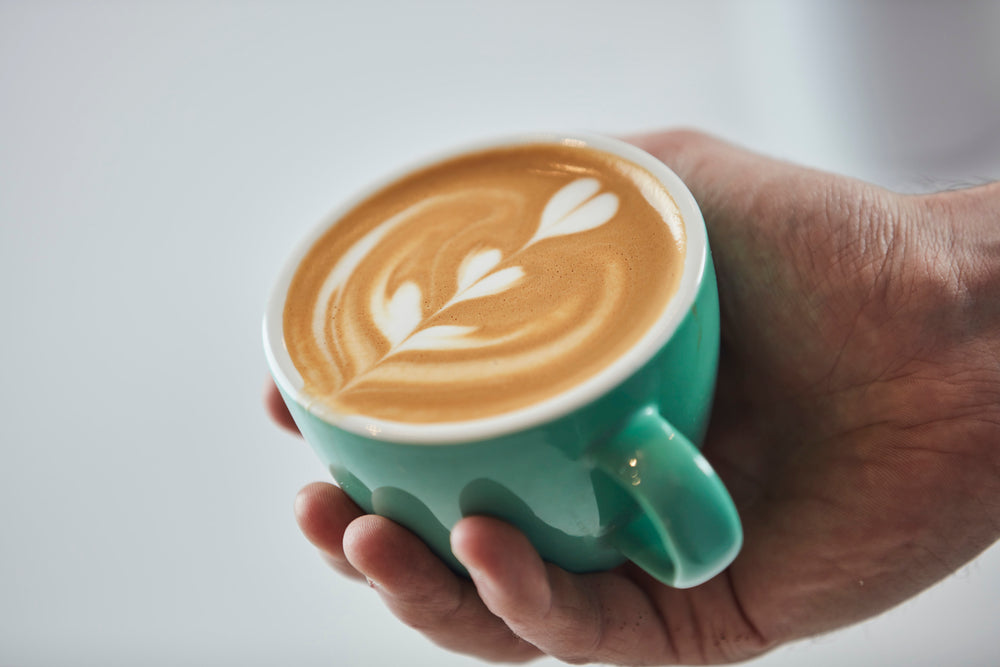One question we’re often asked in the Brew Bar is “how do you come up with those tasting notes?” The short answer is, we cup them and see what they taste like, but what does cupping mean?
Essentially, cupping is steeping coarsely ground coffee in water. Using a set protocol for how much coffee and water, grind size and contact time, we cup in order to detect the general and subtle profiles present within a specific coffee. Since sensory work can be very subjective, we will often cup a coffee as a group - this way we can find any overlaps in flavours detected and rule out any outliers that are picked up.
Cupping is a very useful tool when sourcing and buying new coffees. Rather than just relying on wholesale lists or our internal bias to pick coffees to sell, we will source as many different samples from as many different places as we are able to. We then roast them all to a standardised profile, and cup them together. While we do not comparatively cup, having a spread of coffees to taste means we are able to find what is tasting best at that time of the year. Among the features that we are evaluating are body, sweetness and acidity, but also making sure that there aren’t any defects present from growing or fermentation.
Once we have selected a new coffee, we will also use cupping to decide on which roast profile we use. We carry out multiple sample roasts with different variables manipulated, such as the length of the roast, the amount of heat, or airflow, and then comparatively evaluate the different profiles to come up with the perfect recipe that highlights the best flavours and qualities of the coffee.
Other reasons that we cup are for quality control purposes; making sure that the profile we decided on when we first bought the coffee remains to be the best for it; or to check for any defects that could spoil the tasting experience. Defects are rare in speciality coffee, but it is something that can happen in any industry when dealing with natural products, so regularly cupping means we can remove them before anyone ends up with a “potato-ey” coffee.
We also cup purely for training purposes, building our sensory palates so that we can improve our diagnostic skillsets and remain highly sensitive coffee professionals. There is a professional qualification called “Q Grading”, where one is trained to detect even the smallest traces of flavours and sensations. This is considered the highest sensory qualification within the specialty coffee industry.
All in all, cupping is useful for a variety of different reasons, but always with the end goal being to find and roast the tastiest coffee. Why don’t you give it a go? Either at home or book in for a tableside cupping session in our Brew Bar?
